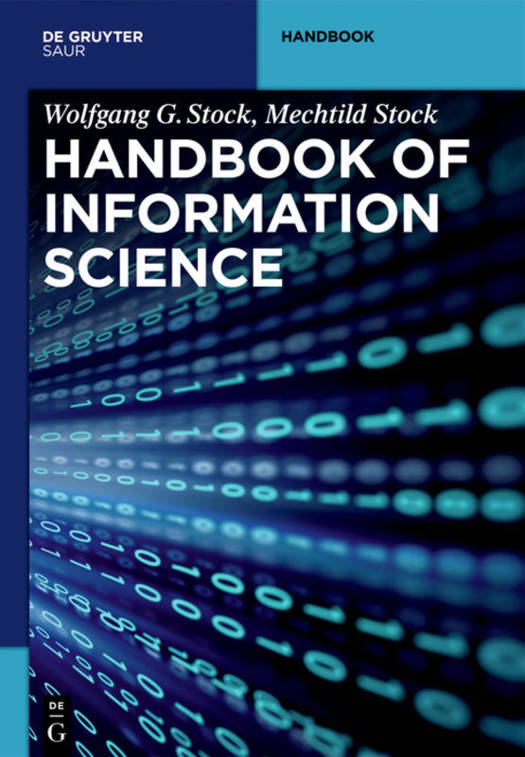
- Afhalen na 1 uur in een winkel met voorraad
- Gratis thuislevering in België vanaf € 30
- Ruim aanbod met 7 miljoen producten
- Afhalen na 1 uur in een winkel met voorraad
- Gratis thuislevering in België vanaf € 30
- Ruim aanbod met 7 miljoen producten
Handbook of Information Science
A Comprehensive Handbook
Wolfgang G Stock, Mechtild StockOmschrijving
Dealing with information is one of the vital skills in the 21st century. It takes a fair degree of information savvy to create, represent and supply information as well as to search for and retrieve relevant knowledge. How does information (documents, pieces of knowledge) have to be organized in order to be retrievable? What role does metadata play? What are search engines on the Web, or in corporate intranets, and how do they work? How must one deal with natural language processing and tools of knowledge organization, such as thesauri, classification systems, and ontologies? How useful is social tagging? How valuable are intellectually created abstracts and automatically prepared extracts? Which empirical methods allow for user research and which for the evaluation of information systems? This Handbook is a basic work of information science, providing a comprehensive overview of the current state of information retrieval and knowledge representation. It addresses readers from all professions and scientific disciplines, but particularly scholars, practitioners and students of Information Science, Library Science, Computer Science, Information Management, and Knowledge Management. This Handbook is a suitable reference work for Public and Academic Libraries.
Specificaties
Betrokkenen
- Auteur(s):
- Uitgeverij:
Inhoud
- Aantal bladzijden:
- 911
- Taal:
- Engels
Eigenschappen
- Productcode (EAN):
- 9783110234992
- Verschijningsdatum:
- 17/07/2013
- Uitvoering:
- Hardcover
- Formaat:
- Genaaid
- Afmetingen:
- 170 mm x 244 mm
- Gewicht:
- 1632 g

Alleen bij Standaard Boekhandel
Beoordelingen
We publiceren alleen reviews die voldoen aan de voorwaarden voor reviews. Bekijk onze voorwaarden voor reviews.











